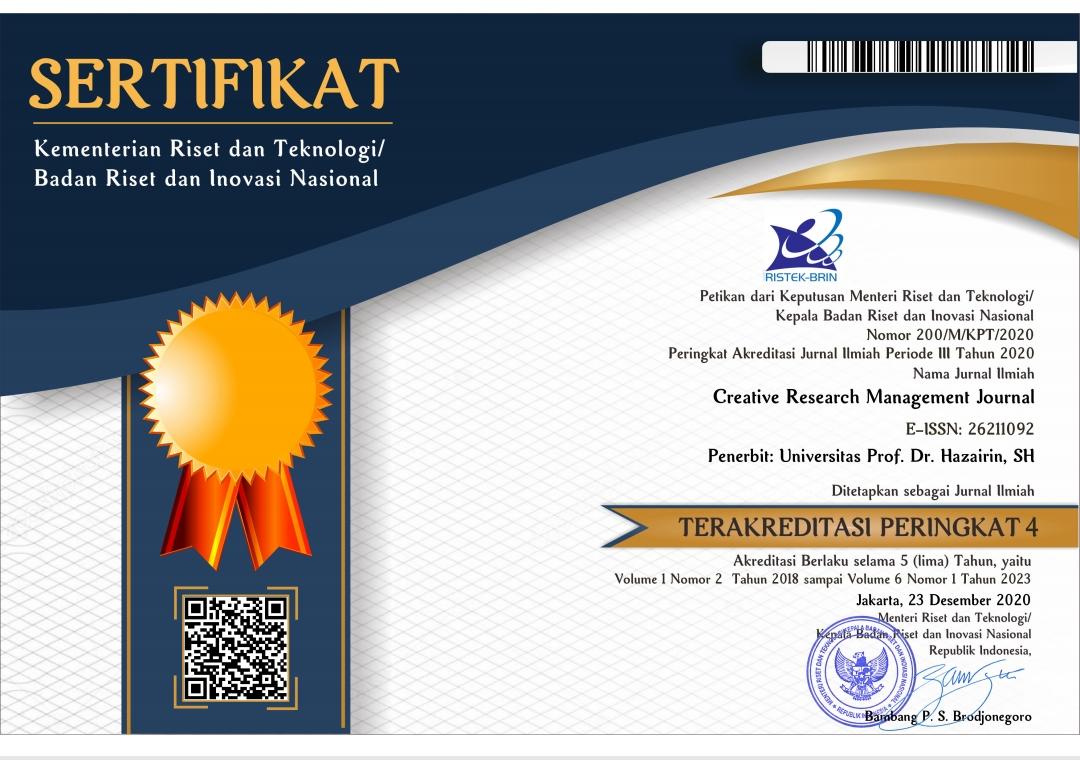PENGARUH PENGGUNAAN FINTECHTERHADAP PERKEMBANGAN LITERASI DAN INKLUSI KEUANGAN PADA UMKM DI KOTA BENGKULU
DOI:
https://doi.org/10.32663/crmj.v4i1.1935Keywords:
Financial Technology, Financial Literacy, Financial InclusionAbstract
This study aims to determine the effect of the use of Fintech on financial literacy and inclusion in Micro, Small and Medium Enterprises (MSMEs) in Bengkulu City. The benefits of this research are as material for consideration and additional information in developing strategies to increase financial literacy and financial inclusion, especially those related to the provision of Fintech-based financial services.The data used in this study are primary data, using a questionnaire distributed to respondents (MSME actors in Bengkulu City), observation and documentation. The analytical tool used is to use quantitative methods with the help of SPSS 21.00.The results showed that the use of fintech has an effect on financial literacy and inclusion in Micro, Small and Medium Enterprises (MSMEs) in Bengkulu City. The limitation in this study is the lack of the number of respondents in returning the questionnaire.With the development of fintech in Bengkulu City and the use of fintech services for MSME players in Bengkulu City, it can open access to business finance more easily and quickly from banking institutions and savings and loan corrections. In addition, the use of application features is used as an effort to market MSME products. The role of fintech in financial inclusion in MSMEs is that Fintech contributes greatly to the empowerment of MSMEs and the local economy. In addition, the use of Fintech for MSME players in Bengkulu City can increase financial literacy in the field of economics














